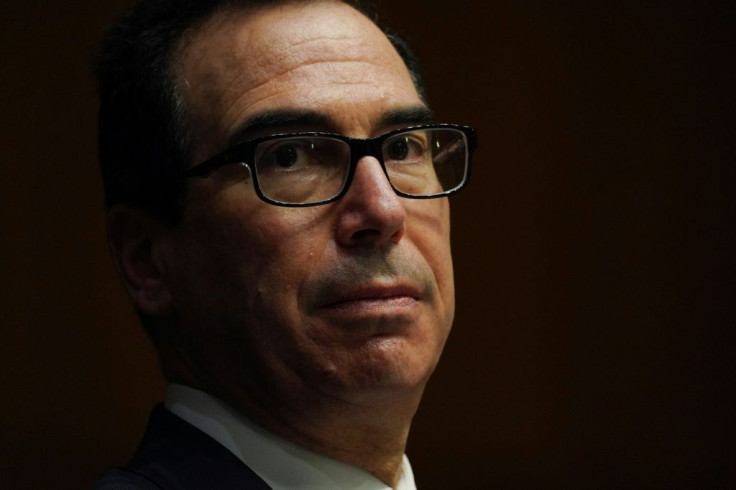No End To US Aid Deadlock Despite Pelosi, Mnuchin Meeting
A meeting between US Treasury Secretary Steven Mnuchin and Democratic House Speaker Nancy Pelosi on Wednesday failed to resolve a deadlock on additional aid to the US economy, but the two sides agreed to keep talking.
The failure to reach a compromise sets the stage for potentially thousands of job cuts in the airline industry as a deal expires Thursday under which US carriers that received billions in aid promised not to lay off workers.
President Donald Trump's administration and Democratic leaders have been at a stalemate for months on a follow-up to the $2.2 trillion CARES Act passed as the coronavirus pandemic intensified in March.
The legislation included extra support to the unemployed, small businesses and the assistance for the aviation sector.
Hopes were raised this week when Mnuchin and Pelosi resumed speaking and then met in-person on Wednesday, but the latest negotiations did not result in a compromise that could clear the Republican-controlled Senate and win Trump's approval.
The Treasury secretary "and I had an extensive conversation and we found areas where we are seeking further clarification," Pelosi tweeted after the meeting. "Our conversation will continue."
Senate Majority Leader Mitch McConnell gave a comparatively dire assessment of the talks, saying "Secretary Mnuchin and the speaker are continuing to speak, but we're very, very far apart."

Provisions in the CARES Act like the extra $600 weekly payments to jobless people and the loans and grants to small businesses have been credited with boosting the US economy's recovery from the coronavirus downturn.
However those provisions expired in recent weeks, while unions have said 100,000 airline workers or more could be laid off without additional federal aid, though analysts expect the actual number to be less.
The main issue dividing Democrats and Republicans in Congress is how much to spend in the new stimulus bill.
Earlier this week, Democrats unveiled a new aid proposal costing $2.2 trillion, $1 trillion less than they initially wanted to spend, and Pelosi said they would be putting the bill to a vote in the House later on Wednesday.
The new measure was aimed at satisfying Trump and Republicans, who have said they don't want to spend more than $1 trillion to further aid the economy.
Democrats in the Senate earlier this month blocked a Republican proposal costing $500 billion, and talks between the two sides petered out in recent weeks as Trump battles Democratic challenger Joe Biden ahead of November's election.
But this week, Mnuchin and Pelosi began speaking again, and the Treasury secretary told CNBC that he was feeling "hopeful" about the talks' prospects, saying that, "We're going to give it one more serious try to get this done."
"I think there is a reasonable compromise here. It's something that the president very much wants to get done," he said.
The latest failure in the talks didn't dim the apparently upbeat mood on Wall Street, where the Dow gained 1.2 percent at the close.
© Copyright AFP {{Year}}. All rights reserved.





















